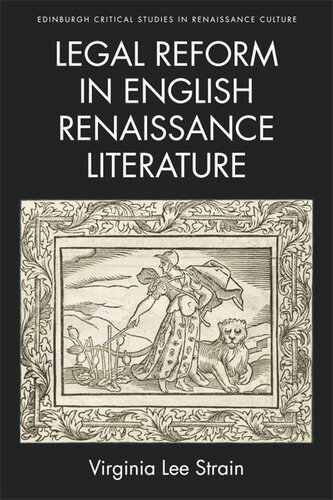

Most ebook files are in PDF format, so you can easily read them using various software such as Foxit Reader or directly on the Google Chrome browser.
Some ebook files are released by publishers in other formats such as .awz, .mobi, .epub, .fb2, etc. You may need to install specific software to read these formats on mobile/PC, such as Calibre.
Please read the tutorial at this link: https://ebookbell.com/faq
We offer FREE conversion to the popular formats you request; however, this may take some time. Therefore, right after payment, please email us, and we will try to provide the service as quickly as possible.
For some exceptional file formats or broken links (if any), please refrain from opening any disputes. Instead, email us first, and we will try to assist within a maximum of 6 hours.
EbookBell Team

4.8
84 reviewsThis book investigates rhetorical and representational practices that were used to monitor English law at the turn of the seventeenth century. The late-Elizabethan and early-Jacobean surge in the policies and enforcement of the reformation of manners has been well-documented. What has gone unnoticed, however, is the degree to which the law itself was the focus of reform for legislators, the judiciary, preachers, and writers alike. While the majority of law and literature studies characterize the law as a force of coercion and subjugation, this book instead treats in greater depth the law’s own vulnerability, both to corruption and to correction. In readings of Spenser’s Faerie Queene, the Gesta Grayorum, Donne’s ‘Satyre V’, and Shakespeare’s Measure for Measure and The Winter’s Tale, Strain argues that the terms and techniques of legal reform provided modes of analysis through which legal authorities and literary writers alike imagined and evaluated form and character.